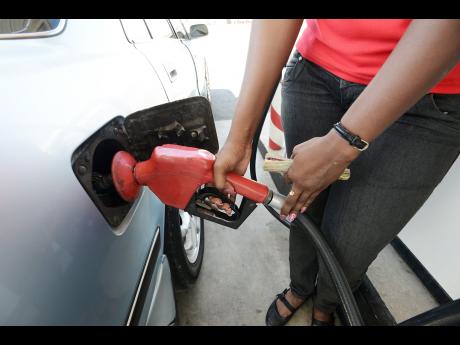Costly smoke
$500,000 to fix each injector issue, not related to bus fires
While as a company the Jamaica Urban Transit Company (JUTC) struggles to see its way out of the red, driving behind or standing beside one of the organisation's buses when it is moving off could leave you seeing black.
Black smoke, that is.
The emissions given off by many of the yellow juggernauts when they move off from a standstill or accelerate from low speed have resulted in numerous complaints from motorists and commuters. The natural suspect is the diesel fuel used to power the state-run transportation company's units.
However, as with many assumptions, this is not the case.
The real problem, according to JUTC Managing Director Colin Campbell, is with the fuel injectors of more than 200 of the buses and not with the diesel fuel being used by the buses, as surmised by many. The bus company, he points out, has been utilising the ultra-low sulphur diesel (ULSD) introduced two years ago.
Still, Campbell, in acknowledging that the complaints are not new and date back to 2003, hopes the company will be able completely change out the faulty injector system "in a couple months".
Problem being fixed
It is being addressed in stages, as Campbell said the problem is being worked on. However, more buses remain to be fixed. "We have a campaign where we are changing out all the damaged injectors. However, there are still some buses on the road that are still smoking," Campbell conceded readily.
The changing-out of faulty fuel injectors has forced the JUTC to dig deep in its already weak pocket to come up with more than $500,000 to address the issue on each unit. There are, however, long-term benefits, as with the changing-out the JUTC is hoping to cut down on its fuel bill which is approximately $10 million weekly.
Campbell, in explaining the effects of a bad fuel injector, said, "The smoke results from the excess burning of fuel. Diesel fuel to the engine is a lubricant, so because the injectors were damaged too much fuel was going into the system. The excess smoke is merely fuel being burnt so it's wasting fuel, that's what it is doing."
He headed off assumptions that there is a connection between the exhaust smoke issue and fires which have affected a number of JUTC units. Among those incendiary incidents were two units going up in flames within two weeks in September 2013, one along Mona Road on September 5 and another on Arthur Wint Drive on September 13, both incidents occurring in St Andrew.
Campbell point out that, "The fires we have on our buses is a totally different thing. It has to do with excess heat and the lack of what is called a heat shield in a section of the engine, nothing to do with fuel."
Despite the nuisance which the smoke from the JUTC buses causes, Campbell is not sure that the state entity is breaching the law with individual units and plays down the cumulative effect. "People may make it seem like it's a lot but right now it's a few buses with smoke, and even the emissions we are having may be below the emission standards," he said.
Under Jamaican law, the licence plate of a vehicle producing excessive smoke may be removed by a certifying officer from the examination depot and the driver issued a ticket and an E1 form to have the matter dealt with.




